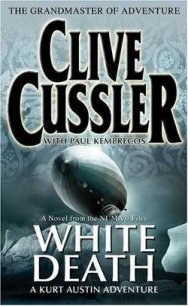The Whispering Land - Durrell Gerald (читать книги .TXT) 📗
Although they had some six miles of beach to use, the colony chose to lie in a tight conglomeration, covering an area about a quarter of a mile in length. It seemed to me that if they had spaced themselves out a bit more they would have halved the troubles of the colony, for, packed tightly like this, each bull was a constant state of nerves* over his little group of wives, and throughout the colony there were fights breaking out all the time. A lot of the blame for these, I am afraid, was due to the females who – as soon as they thought their husband was not watching – would undulate gracefully across the sand towards the next group, and sit there watching the bull with languishing eyes. It would take a very staunch Presbyterian* fur seal to resist the appeal of those pleading melting eyes. But before any infidelity could take place the husband would suddenly make a rapid count and discover that he was a wife short.* As soon as he spotted her, he would surge after her, his enormous bulk scattering the shingle like spray, and from his mouth, with its great white fangs, would issue a prolonged, lion-like belching roar. Reaching her he would catch her by the scruff of the neck and shake her savagely from side to side. Then, with a jerk of his head, he would send her spinning across the sand towards his harem.
By this time the other bull would have worked himself into a state of nerves. He would feel that the husband was too close to his wives for safety, and so he would lunge forward with open mouth, uttering fearsome gurgling cries, and the two would join in battle. Most of these fights were merely mock combats, and after a good deal of mouth-opening, roaring and lunging, honour would be satisfied. But occasionally both bulls would lose their tempers, and then it was incredible and frightening to watch how two such ponderous and dropsical-looking* creatures could turn into such swift deft and deadly fighters.

The shingle would be churned up as the two colossal creatures snapped and barged at each other's fat necks, and the blood spurted out over the fascinated audience of wives and babies. One of the favourite gambits during these fights was to undulate across the shingle towards your opponent, waving your head from side to side, like a boxer feinting.* Then, when you got near enough you would lunge forward and, with a sideways and downwards bite, try and slash open the thick hide of your antagonist's neck. Most of the old bulls on the beach had fresh wounds or white scars decorating their necks, and one I saw looked as though someone had slashed him with a sabre, for the wound was some eighteen inches long and appeared to be about six inches deep.
When a bull waddled back to his wives after such a battle they would gather round him in admiration and love, elongating their sinuous necks so that they could reach up and nuzzle and kiss his face, rubbing their gold and silver bodies against his barrel chest, while he stared up into the sky arrogantly, occasionally condescending to bend his head and bite one of his wives gently on the neck.
A lot of the nervous tension that the bulls with wives suffered from, and a lot of the actual fighting was due to the bachelor bulls. These were young bulls, much slimmer and less muscular than the old ones, who had been unable to acquire a wife or wives for themselves at the beginning of the breeding season when the courtship battles take place. These young bulls spent most of their time just sleeping in the sun, or swimming about in the shallow water at the sea's edge. But, every now and then, they would be smitten with an impish desire to irritate their elders and betters.* They would swagger slowly along the colony, their great frog's feet stuck out, gazing about them with a benign air of innocence, as though there was not an evil thought in their heads. Then, as they passed a family group in the centre of which squatted an old bull star-gazing,* the young bachelor would suddenly swerve and break into an undulating run, getting faster and faster as he approached the group. The females would scatter wildly as he burst through their circle, he would hurl himself at the old bull, give him a quick bite on the neck, and then undulate rapidly away before the old bull really knew what was happening. Then, with a roar of rage the old bull would give chase, but by then the gay bachelor had reached the sea and plunged in, so the old bull, grumbling to himself, would return to round up his scattered wives, and settle himself in their midst for another period of astronomical research.
The ones that seemed to lead the most carefree and pleasant lives were the young, but fully adult bulls, who had only succeeded in getting themselves one wife, they generally lay a little apart from the main colony, their wife and cub alongside them, and spent a lot of time sleeping. They could afford to do this, as it was obviously easier to control one of these high-spirited female seals than to try and cope with the vagaries of six or seven.
I have not as yet mentioned the fur seal pups which were such an important and amusing part of the colony. There were hundreds of them, and they moved continuously through the mass of sleeping, love-making, bickering adults, looking like animated black inkblots. They would lie sleeping on the shingle in the most extraordinary abandoned attitudes, as though they were really balloon animals* that had suddenly been half deflated. Then, suddenly, one would wake up and discover that its mother was not there, and it would hoist itself on to its flippers and move sturdily down the beach, employing the strange rumba-like movement of the adult seal. Planting its flippers in the shingle with great determination, it would pause every few yards to open wide its pink mouth and bleat forlornly, like a lamb. Then, after it had wandered some distance in search of its parents, its bravado and strength would desert it, and it would give one more despairing bleat and then flop down on its tummy and sink almost immediately into a deep and refreshing sleep.
There appeared to be a rather vague creche* system in operation for some of the pups, for in places there would be groups of them, perhaps ten or twenty together, looking like heaps of curiously shaped coal. There would be a young bull or a couple of females sleeping nearby who were apparently in charge of these creches, for if one of the babies wandered outside the invisible area that formed the creche, one of the adults would rouse itself, undulate after it, catch it up in its vast mouth, give it a good shaking and throw it back into the nursery again. In spite of careful watching I was never able to decide satisfactorily whether these groups of babies were the progeny from one family of seals, or whether they were a mixture from several families. If they came from several families then these groups of babies would be, in effect, a sort of nursery school or kindergarten where the babies were dumped* while the parents went down to the sea to swim or feed. I wanted to film the daily behaviour of the pups, but in order to do this one had to pick out one particular baby, and as they were all identical in size and colour this was difficult. Then, just when I had begun to despair, I saw a pup that was recognisable. He had obviously been born later than the others, for he was only half their size, but what he lacked in inches he more than made up for in determination and personality.*
When I first noticed Oswald (as we christened him) he was busily engaged in stalking a long ribbon of glittering green seaweed that lay on the shingle, and which he was obviously under the impression was some sort of monstrous sea-serpent which was threatening the colony. He shambled towards it, bleary-eyed, and stopped a yard or so away to sniff. A slight wind twitched the end of the seaweed, and at this obviously threatening display Oswald turned and lollopped off* as fast as his flippers would carry him.* He stopped a safe distance away and peered over his shoulder, but the wind had died now and the seaweed lay still. Carefully he approached it again, stopping some six feet away to sniff, his fat little body taut and trembling, ready to run should he see the slightest movement. But the seaweed lay quiet in the sun, shining like a ribbon of jade. He approached it slowly and carefully, giving the impression that he was almost tiptoeing on his great flat flippers, and holding his breath in case of accidents. Still the seaweed made no movement. Cheered by this display of cowardice, Oswald decided that it was his duty to save the colony from this obviously dangerous enemy, which was liable to take them unawares. He shuffled his bottom to and fro ridiculously, so that his hind flippers got a good grip in the shingle, and then launched himself at the seaweed. In his enthusiasm he rather overshot the mark, and ended up on his nose in a fountain of shingle, but with a large section of the seaweed firmly grasped in his mouth. He sat up, the seaweed dangling from either side of his mouth like a green moustache, looking very pleased that his first bite had apparently disabled the enemy completely. He shook his head from side to side, making the weed flap to and fro, and then, shambling to his flippers, he galloped off along the beach trailing the weed on each side of him, occasionally shaking his head vigorously, as if to make sure his victim was really dead.



